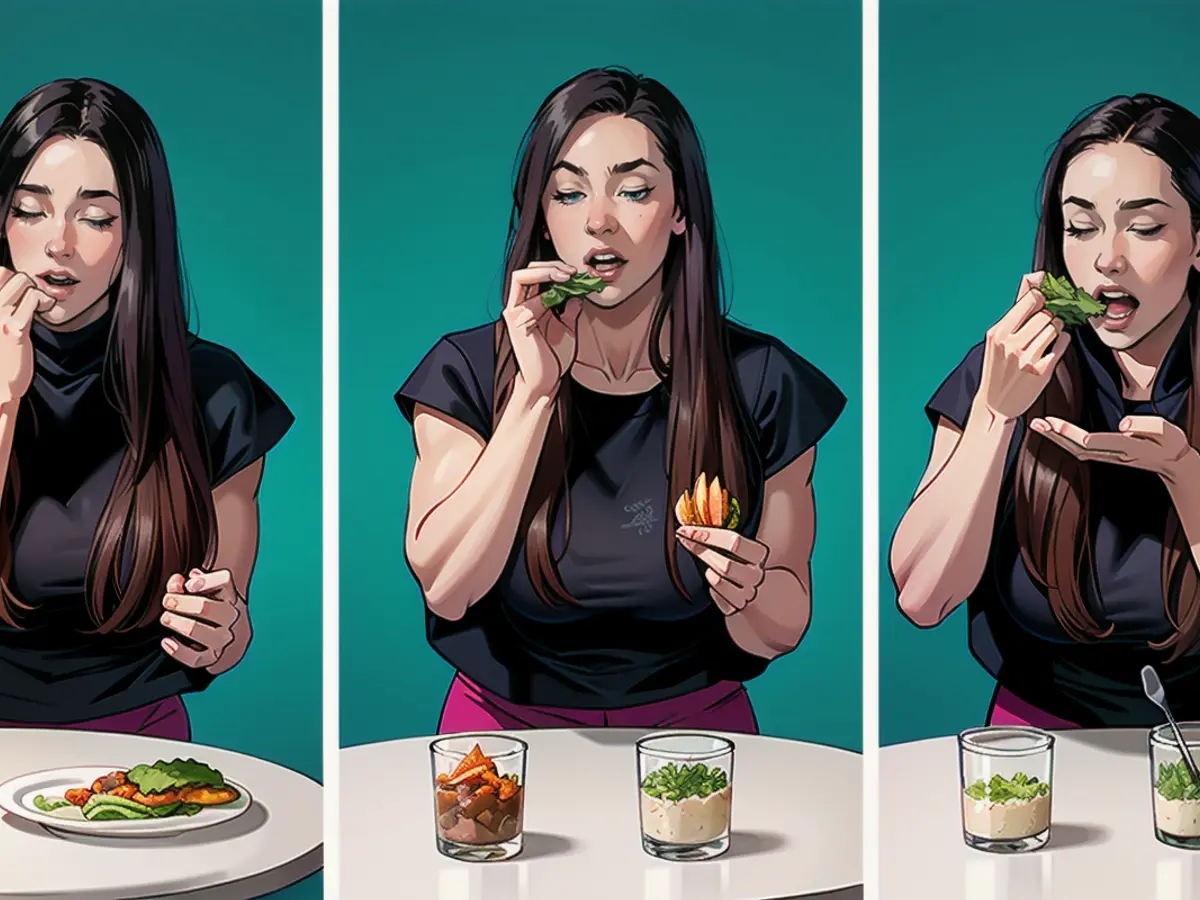These ultraprocessed foods may shorten your life, study says
The risk went up to 15% for men and 14% for women once the data was adjusted, said study lead author Erikka Loftfield, an investigator at the National Cancer Institute in Bethesda, Maryland.
Asked about their consumption of 124 foods, people in the top 90th percentile of ultraprocessed food consumption said overly processed drinks topped their list.
“Diet soft drinks were the key contributor to ultraprocessed food consumption. The second one was sugary soft drinks,” Loftfield said. “Beverages are a very important component of the diet and the contribution to ultraprocessed food.”
Refined grains such as ultraprocessed breads and baked goods ranked next in popularity, the study found.
“This is one more large, long-duration cohort study confirming the association between UPF (ultraprocessed food) intake and all-cause mortality, particularly from cardiovascular disease and type 2 diabetes,” said Carlos Monteiro, emeritus professor of nutrition and public health at Brazil’s University of São Paulo, in an email.
Monteiro coined the term ultraprocessed food and created the NOVA food classification system, which looks beyond nutrients to how foods are made. Monteiro was not involved in the study, but several members of the NOVA classification system were coauthors.
The NOVA classification system sorts foods from minimally processed — whole foods such as fruits and vegetables — to processed foods such as deli meat and sausage — to ultraprocessed. Ultraprocessed foods contain ingredients “never or rarely used in kitchens, or classes of additives whose function is to make the final product palatable or more appealing,” according to the Food and Agriculture Organization of the United Nations.
The list of additives includes preservatives to resist mold and bacteria; emulsifiers to keep incompatible ingredients from separating; artificial colorings and dyes; anti-foaming, bulking, bleaching, gelling and glazing agents; and added or altered sugar, salt and fats designed to make food appetizing.
Health risks linked to processed meats and soft drinks
The preliminary study, presented Sunday at the annual meeting of the American Society for Nutrition in Chicago, analyzed dietary data gathered in 1995 from nearly 541,000 Americans ages 50 to 71 who were participating in the US National Institutes of Health-AARP Diet and Health Study.
Researchers linked the dietary data to death rates over the next 20 to 30 years. Compared with those in the bottom 10% of ultraprocessed food consumption, people who ate the most overly processed food were more likely to die from heart disease or diabetes, according to the study. Unlike other studies, however, researchers found no rise in cancer-related death.
Some ultraprocessed foods carried more of a risk than others, Loftfield said: “Highly processed meat and soft drinks were a couple of the subgroups of ultraprocessed food most strongly associated with mortality risk.”
Diet drinks are considered ultraprocessed food because they contain artificial sweeteners such as aspartame, acesulfame potassium and stevia, and additional additives not found in whole foods. Diet beverages have been linked to a higher risk of dying early from cardiovascular disease as well as the onset of dementia,type 2 diabetes, obesity, stroke and metabolic syndrome, which can lead to heart disease and diabetes.
The US Dietary Guidelines for Americans already recommends limiting sugar-sweetened beverages, which have been linked to premature death and the development of chronic disease. A March 2019 study found women who drank more than two servings a day of sugary beverages — defined as a standard glass, bottle or can — had a 63% increased risk of premature death compared with women who drank them less than once a month. Men who did the same had a 29% increase in risk.
Processed meats such as bacon, hot dogs, sausages, ham, corned beef, jerky and deli meats are also not recommended; studies have linked red and processed meats to bowel and stomach cancers, heart disease,diabetes and early death from any cause.
“The evidence from this new study indicates that processed meat may be one of the most unhealthy foods, but people do not tend to view ham or chicken nuggets as UPF (ultraprocessed food),” said Rosie Green, a professor of environment, food and health at the London School of Hygiene & Tropical Medicine, in a statement. She was not involved in the study.
The study found that people who consumed the most ultraprocessed food were younger and heavier, and had an overall poorer quality of diet than those who ate fewer ultraprocessed foods. However, the increased health risk could not be explained by these differences, because even people with normal weight and better diets were also at some risk for early death from ultraprocessed foods, the study found.

Results may underestimate risk
One key limitation of the study was that the dietary data was gathered only once some 30 years ago, Green said: “It’s difficult to say how dietary habits might have changed between then and now.”
Ultraprocessed food manufacturing has exploded since the mid-1990s, however, with estimates that as nearly 60% of the average American’s daily calories come from ultraprocessed foods. That’s not surprising, considering as much as 70% of the food in any grocery store may be ultraprocessed.
“If anything, we are probably underestimating ultraprocessed food consumption in our study because we’re being very conservative,” Loftfield said. “The intake is likely to have only grown over the years.”
In fact, a study published in May that found similar results — a higher risk of premature death and death from cardiovascular disease in over 100,000 health professionals who ate ultraprocessed foods — accessed ultraprocessed food intake every four years and found consumption doubled between the mid-1980s and 2018.
“For example, the daily intake of packaged savory snacks and dairy-based desserts, such as ice cream, has essentially doubled since the ‘90s,” said the lead author of the May study, Dr. Mingyang Song, associate professor of clinical epidemiology and nutrition at Harvard University’s TH Chan School of Public Health.
“In our study, just as in this new one, the positive association was mainly driven by a few subgroups, including processed meat and sugar sweetened or artificially sweetened beverages,” Song said. “However, all categories of ultraprocessed food were associated with increased risk.”
Choosing more minimally processed foods is a one way to limit ultraprocessed foods in one’s diet, Loftfield said.
“We should really be focusing on eating diets that are rich in whole foods,” she said. “And if the food is ultraprocessed, then look to see the levels of sodium and added sugars and try to make the best decision possible using the nutrition facts label.”
The findings suggest that consuming large amounts of ultraprocessed food, particularly highly processed meat and soft drinks, increases the risk of early death from heart disease or diabetes. This aligns with previous studies highlighting the connection between diet drinks and health issues such as cardiovascular disease, dementia, type 2 diabetes, obesity, stroke, and metabolic syndrome.
Given the abundance and accessibility of ultraprocessed foods in today's grocery stores, it's plausible that the true consumption levels are significantly higher than reported in older studies. Newer research, like the study published in May, supports this notion, revealing a significant increase in ultraprocessed food intake over the past few decades.
As such, integrating more minimally processed foods into our diets and being mindful of the sodium and added sugars in ultraprocessed foods could help individuals make more informed decisions and potentially mitigate the associated health risks.








